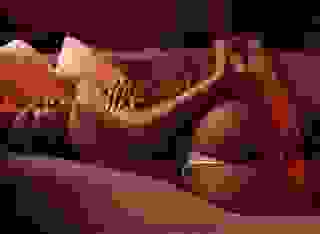Note: You can change font size, font face, and turn on dark mode by clicking the "A" icon tab in the Story Info Box.
You can temporarily switch back to a Classic Literotica® experience during our ongoing public Beta testing. Please consider leaving feedback on issues you experience or suggest improvements.
Click hereI take a break but return half an hour later having had a sandwich and hoping the library won't object to the extra cup of coffee I've brought back with me.
I start by photocopying chapter 11 from 'Tales of Bodmin Moor'. I make a note of the author, one Charles Penhalligan, the publisher and the publication date. Given the book was published over eighty years ago, I suspect copyright won't be an issue. I feel I now have a starting point: Lovell gained his title in the 1850s, got married and had a son who, if Ruth is right, would have been a little under ten when he died. Let's say autumn 1862 as the place to begin searching the old newspapers.
I go to the counter and I suppress a yawn as I ask the woman, Denise, according to her ID badge, about whether they have copies of the local newspaper, the Royal Cornwall Gazette. "That we do, Miss," she replies in a very broad West Country accent, "but I'm afraid they're all on that microfiche stuff. I know that people are always disappointed that they're not proper papers." I assure her that it's fine and, yes, I do know how to use a microfiche reader.
She shows me the cabinet that holds the microfiche sheets and leaves me to get on with it. I take a few minutes to find the sheets that hold the editions from the 1860's and begin the search. After an hour I've just started on 1862 and my eyes are going funny from staring at the screen. I hadn't realized that in the 1860s Newspapers didn't do headlines -- or any text above minuscule for that matter. I suppose that it allowed them to minimise the paper needed. I blink and stretch and press on.
The first evidence appears an hour and a half later when I find the obituary announcement of the child William's death in 1864:
IT IS WITH the deepest sadness that we must report the sudden death of WILLIAM ISSAC BLYTH, the only & much-beloved son of Sir Lovell & Lady Blyth on the night of 28th October from a sudden and terrible case of the brain fever. We extend our deepest sympathy and condolences to the family at this unhappy time."Bingo!" I exclaim and then feel a little guilty: this is the death notice of the boy who's dying screams I've heard, twice. Nevertheless, I have a date and, if the tales are correct, Lady Blyth and her hideous husband disappeared on the thirtieth or thirty-first of the month.
It doesn't take long before I have confirmation that it was the thirty-first on which they disappeared, that Lady Blyth left the house during the night and, a little while later, Sir Lovell set out in pursuit of her across the Moor... and they both disappeared. That's all; apart from a mention that policemen from the recently formed Devon and Cornwall Constabulary were investigating and searching the Moor. I read on, wondering if there were ever any follow-up, and find just two things.
The first is a short piece telling of how the body of a woman, a spinster, had been found in her cottage a couple of miles from Purdew Hall. She had been dead for several days and was thought to have been attacked by some burglar as there were signs of a struggle. What caught my eye was a mention that the woman, Arabella Penross, had worked at Purdew Hall. With a shiver, I recall the ghastly spectre of Sir Lovell shouting "Arabella, come here you mealy-mouthed cunt!" This must be the same woman, surely.
The second, some three months later, is a notice of the sale of Purdew Hall. There is a comment that no sign of the couple had ever been found and the County Coroner had now officially declared them believed dead. The estate was being sold to pay death duties and, as Sir Lovell had died without heir and intestate, the remaining proceeds of the sale would be divided between various distant relatives. As no mention is made of her, I assume old Lady Blyth must also have died by this point.
I press PRINT and add this to the other printouts I've taken before removing the microfiche film and slipping it back into its paper sleeve, then turning off the reader. I stretch and notice through the window that the light is fading so I quickly tidy up and gather my things together.
On the way out the library, Denise the assistant bids me goodbye. "You're looking much happier than you were earlier, my dear; has it been a successful afternoon?"
"It has, and thanks for your help earlier, I found lots of information but I'll need to come back tomorrow; I have more research still to do."
"I'll see you tomorrow then."
I am back at the library before it is even open, a cup of hot coffee in hand. Yes, the coffee is very necessary for once again I had to endure the ghost cries of the child and Lady Blyth's shade in my room. Whether there were apparitions on the landing and in the hall last night I simply don't know; wild horses couldn't have dragged me from my room, certainly not without Ruth at my side.
I had made use of yesterday evening to review the results of my research and to make some notes on what I still needed to find out. The whole point of 'Mystery, Myth and Murder' is the idea that we investigate these things, so specific dates, places and details are the order of the day. Therefore, the dates of the marriage of Sir Lovell and Rosalind and the birth of William Isaac would be useful, either from newspapers or the Registrars' records. Some official confirmation of the cause of death of William (did they have coroners back then, I wonder) and what about the investigation into the disappearances? Surely the police must have made some kind of report.
Lastly, there was the woman, Arabella Penross. Assuming this was the same Arabella as the ghost we saw, the question is who was she and what was her status at Purdew Hall? Lady Blyth seemed very upset by her dismissal; what had she said: "For my sake and for Williams'," or something like that? So perhaps she had been a nursemaid... no! Ruth had mentioned her room had been the Governess's room; I'll bet she was the Governess. Since I'm not exactly sure what a governess's duties entailed, it too has been added to my 'Things To Find Out' list.
I hear the library door in front of me being unbolted and I sigh with relief; it's too bloody cold out here for standing around. I head straight to the main library and the History section to answer the easy question: what exactly was a Governess?
It turns out, according to 'Above Stairs and Below Stairs -- Life in the Victorian Household' that Ruth had it pretty well spot on, though the book does offer some additional information. In particular there is the fact that the Governess existed "between stairs" as the book puts it; she was not exactly a servant since she was of "gentle birth", meaning she was a bit posh, I assume, but whose situation meant she had to seek paid employment, which was decidedly not posh, apparently. Still, the Governess's education and background would have allowed her to interact more easily with the Lord and Lady of the house. Seeing Lady Blyth's reaction to Arabella's dismissal, it seems that Arabella had become an ally to Lady Blyth, perhaps even something of a companion.
With that question ticked off, I feel hopeful heading back to the Reference section and there is Denise again. Now that we've spoken before it seems simplest just to talk to her and ask if they have copies of birth and marriage certificates held in the library. "I can look through the newspapers to find marriage and birth announcements but the certificates would be better," I explain.
"I'm sorry, Miss, but we don't; I wish I had a pound for every visiting would-be-genealogist who asked me that!" she smiles. "There's the County Record Office right here in Bodmin, although it is on the new estate on the edge of town. You might find copies of christening and marriage certificates in the churches where they happened but otherwise, it's the National Registrar, I'm afraid, though I think you can search and order copies online these days, apparently."
"Damn," I mutter under my breath; given my navigation skills, I could do without trying to find somewhere else. However, her mention of 'genealogist' triggers a memory and a light bulb turns on in my head. "Okay, looks like the Internet it is then; do you have Wi-Fi that I can connect to?"
I find a desk, which has a plug nearby and, though I don't know if I'm supposed to use it, I plug the laptop charger in and start up the laptop. I launch my personal email and do a quick search for emails from Maria Cooper, or 'Mum' as I usually call her. I'm looking for an email from about, let me see, ten or eleven months ago. And there it is: an email with an attachment that has the results of Mum's months, possibly years, of research into our family tree.
Opening the document, a scanned copy of Mum's hand-drawn original, I begin tracing back over the generations. There: Judith Redmayne, born 1784 died 1851 in Truro, Cornwall having married Percival Cooper in 1801. That's where I'd seen Redmayne. Okay, so Rosalind Redmayne isn't exactly an ancestor but she just might be a distant relative. That thought gives me a little shiver of excitement.
Right; I get onto the web and to what turns out to be called the General Register Office. Denise is right, you can order on line but you have to have them mailed to you to see them! Damn. Well, if necessary I can go to the County Records Office tomorrow. The library being closed on a Wednesday had seemed like a good excuse to spend the day with Ruth so perhaps I'll just order the copies online later. Anyway, for now, it looks like the newspapers will have to do. At least searching for this sort of information I can just focus on the Announcements section of each edition under 'Births, Marriages and Deaths', or 'Hatches, Matches and Dispatches' as I've heard it nicknamed. Still, it's a tedious job but after a couple of hours, I know that Sir Lovell Arthur Blyth and Miss Rosalind Elizabeth Redmayne were married at St Petrock's Parish Church on 24 June 1853 and that their son, William Isaac, was born on 13 February 1855.
So far, so good but now I need to find out about what actually happened. Given that my search of the newspapers yesterday revealed only vague suggestions I need to find some other source. The police are the obvious choice, so I pack up my laptop and go to the enquiries desk. "Denise, are there any books or files that detail police cases from the 1860s?" I ask her. "Some kind of summary of case reports, perhaps?"
"I'm afraid not," Denise tells me.
"Actually, there is something," a colleague standing behind her interjects. He's a young chap with a nervous habit of repeatedly pushing his glasses up his nose. "Um, in the store room downstairs there are all the records from the old Bodmin Police station that they passed to us, back when they moved to the fancy new regional Police HQ outside town." He looks across at me. "They've never been sorted or catalogued, I'm afraid Ms, but I, er, I could take you down there and um we could do a quick search, if you, er, wanted," he concludes a little shyly.
"Thank you... George," I read from his name badge, "that would be fantastic."
On the way to the storeroom, which is evidently in the basement, we pass through a very large room filled with row upon row of metal shelving all packed with books. "The stacks," George says as if that explains everything. Beyond we come to a smaller room. This is lined with the same metal shelving but that is where the similarity ends. The stacks had a kind of order to them, albeit a rather tatty and dusty looking one. This room, however, is chaos: the shelves are stuffed with a variety of boxes, folders and ledgers, in a multitude of sizes, shapes and muted colours, and this disorder spills onto the floor with boxes and books stacked haphazardly.
"Holy shit," I murmur, "how do you ever find anything?"
"Um, we don't. All this stuff has basically been dumped here; it's supposed to be gone through and organised like, but no one's had the time or willpower yet. Some of the local historical society said they'd have a go last year and they made a bit of a start."
"Really?" I ask sceptically.
"Oh yes. Not a proper job, mind, but they did start sorting things by year." He gestures to a box with 'Notebooks -- 1900-10' written in red marker pen on the side. I take a deep breath. "I seem to remember someone saying that they only sent us stuff more'n a hundred years old," he adds. "Probably worried about someone still alive being in the newer stuff."
"Well, I'm looking for 1864; can you help me? I'm Bethany, by the way"
"I can for a bit, er, at least until Mary notices I'm missin'; she's the library manager." I get the impression he's glad for the chance to do something different.
It's laborious, dusty work but we try to be systematic. Initially, it's just trying to find anything from the 1860s which isn't too tricky thanks to the police's obsessive dating of everything. Anything we find gets added to a pile that slowly grows just outside the door. I notice that he glances shyly at me from time to time as we talk and work. I don't mention working for the BBC, just that I'm researching the truth behind a purported haunting at the Purdew Manor Hotel.
"What, like they do on 'Mystery, Myth and Murder' on the TV? I love that show. It would be so cool to go, like, ghost hunting the way Rick Ripley does," he enthuses, making me smile.
"I guess, though I suspect the reality is less exciting than it appears on the TV," I tell him, looking at the dirt and dust covering me and the boxes and shelves still to be checked.
We push on steadily. I'm not sure what the time is but I'm getting very thirsty when George calls me over. He's part way through a long series of large bundles, each in a sort of manila folder and bulging with papers, all tied with ribbon, rather as a Christmas present might be. I've encountered several myself so far and they're a bugger to untie and even harder to tie back up again after checking the contents. This time, however, George has hit pay dirt, with two folders that seem to cover the latter months of 1864 and the start of 1865. "George, you're a marvel!" I tell him. "Will it be okay to take these upstairs to examine them carefully?"
"I should think so but, Bethany you won't, um, like try to take any of these papers away will you?"
"No, I promise I won't but it's okay if I photocopy stuff, right?" He says it should be no problem and together we carry the two bundles and the few other things upstairs and over to a large table in the corner of the reference section.
Before starting I pop out for coffee, buying one for George too by way of a thank you for his help. I consider stopping for lunch but decide that I need to push on and get through this and so, back at the desk, I start on the first bundle.
It's an eclectic mix: there are incident reports, witness statement, time sheets, duty rotas, crime reports and requisitions for uniform, all in manuscript as I think they predate the typewriter. They are generally in date order, though there are odd sections that are out of place or disordered as if items have been removed and replaced carelessly in the past. My heart skips a beat as I spot 'Purdew Hall' as I turn a page. I then almost have a heart attack as my eyes are covered from behind by what I realize are, as they were at the hotel on Sunday, a pair of slim, chilly-fingered hands.
"Hello Bethany, dear; guess who?" Ruth's voice whispers huskily in my ear.
"Ruth!" I exclaim, rather loudly and, as she removes her hand, I glance across to the Enquiries Desk expecting a disapproving look from Denise. "Ruth, what are you doing here?" I ask more quietly.
"I missed you, so I thought I'd catch the bus and come in and see how you're getting on. Are you... upset that I'm here?" she asks.
"Of course not," I tell her, taking her hand and squeezing it. "
"Good. So, how's it going and what's all this stuff?"
I give Ruth a brief outline of what I've been doing and where all these papers have come from. I also mention how Lady Blyth's maiden name, Redmayne, is the same as one of my own distant relatives. "I also think I know who the ghost woman we saw with Lady Blyth was," I tell her and explain my theory that she was the Governess, Arabella Penross. She was found dead in her cottage a couple of miles from Purdew Hall a few days after the couple disappeared."
"Urgh, creepy!" Ruth replies.
"Very," I agree. "However, I think I may have just found some of the police papers linked to the disappearances of Lovell and Rosalind." I turn to the page I had only glanced at, as Ruth huddles close to me to read at the same time.
This morning, Thursday 1st November 1864, at 11 of the clock Mr John Blackwood, Butler at Purdew Hall in this borough, did attend this station to report that his Master and Mistress, Sir Lovell and Lady Blyth, were missing and believed lost upon Bodmin Moor.
He stated that it is suspected that Lady Blyth had fled the house at some time during the night. He ventured that her ladyship had not been in her right mind following the death of her Son, Master William three days past and that she and the Master had been much distressed with each other since the sad occurrence. Upon being pressed on the Matter, Blackwood confided that her ladyship seemed to blame her husband for the boy's death, claiming that she hadn't been allowed to save him.
Lady Blyth's vanishment had been discovered after the Boot Boy, Thomas, was awoken by some noise in the night. The Impetuous Youth went to investigate and noticed that the front door of the Hall was ajar. He duly raised the alarm by waking his sister (who is one of the Maids) who in turn roused others, from concern that intruders might be abroad in the House. When Her Lady's Maid when to check on her, Lady Blyth absence was discovered.
When told, the Master was much vexated and ordered Blackwood to immediately help him dress, declaring that he knew whence 'That God D_____d Woman' had fled. Once attired he immediately set out, though without his topcoat, despite the inclemency of the night. As he had not returned at daybreak and at Old Lady Blyth's instruction, Blackwood sent some of the Estate's men out to see if they could find their Master and Mistress.
Sgt. Jackson, with Constables Smith and Whealman are to accompany Blackwood in his trap, returning to Purdew Hall to assist with the search on the Moor."Well, it looks like the story of the disappearance s is true," Ruth observes as we finish reading.
"And there are lots of added details, like the name of the butler and policemen. Also, that Lady Blyth blamed her husband for the death of William."
"Hmm, her ghost in your room: she looked like she was locked in. Perhaps Sir Lovell locked her in for some reason."
"I wonder if it was meningitis that the boy died from..." I muse. I remove the report sheet from the bundle and place it to one side, marking the place it came from with an unused coffee shop napkin. "Let's see what else what else we can find." There are some notes and reports from the search on the Moor, all negative and I'm beginning to wonder if any real investigation as to why her Ladyship ran away was ever conducted when, tucked between the pages, I find a folded piece of paper which I open and read:
Inspector, I heard report this afternoon that young Whealman had been talking to the domestics at Purdew Manor and asking inappropriate questions, contrary to your instructions to treat the matter with delicacy, as requested by Old Lady Blyth. I have reprimanded him most severely and can assure you, Sir, that there shall be no repetition.
Respectfully yours,
Edwin Jackson (Sgt)"Sounds like young Whealman was playing detective!" Ruth quips. I glance towards her and feel so happy we're discovering this together.








